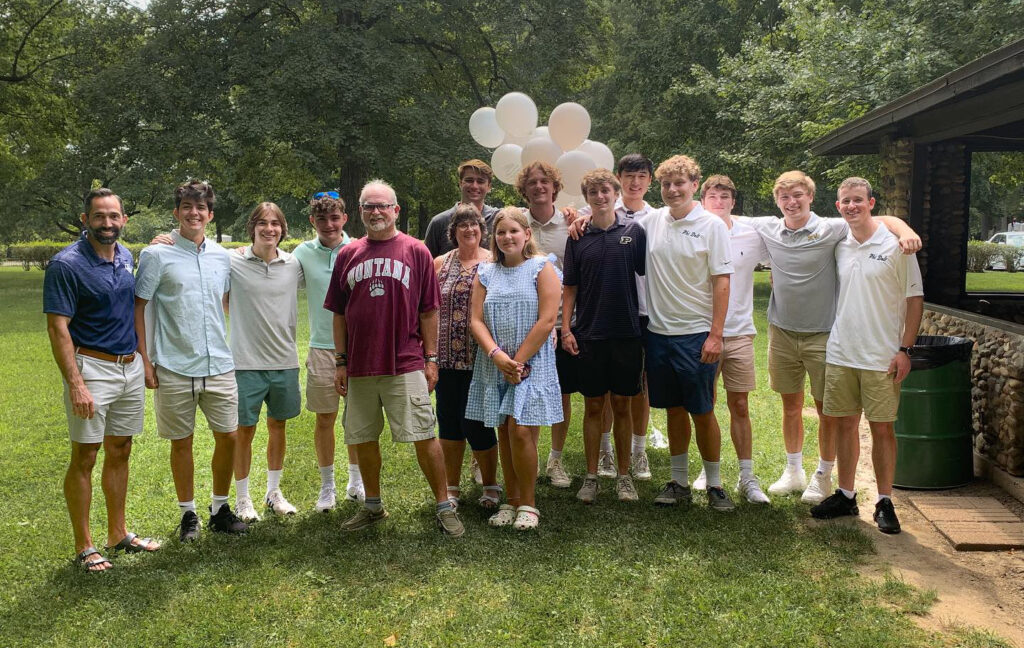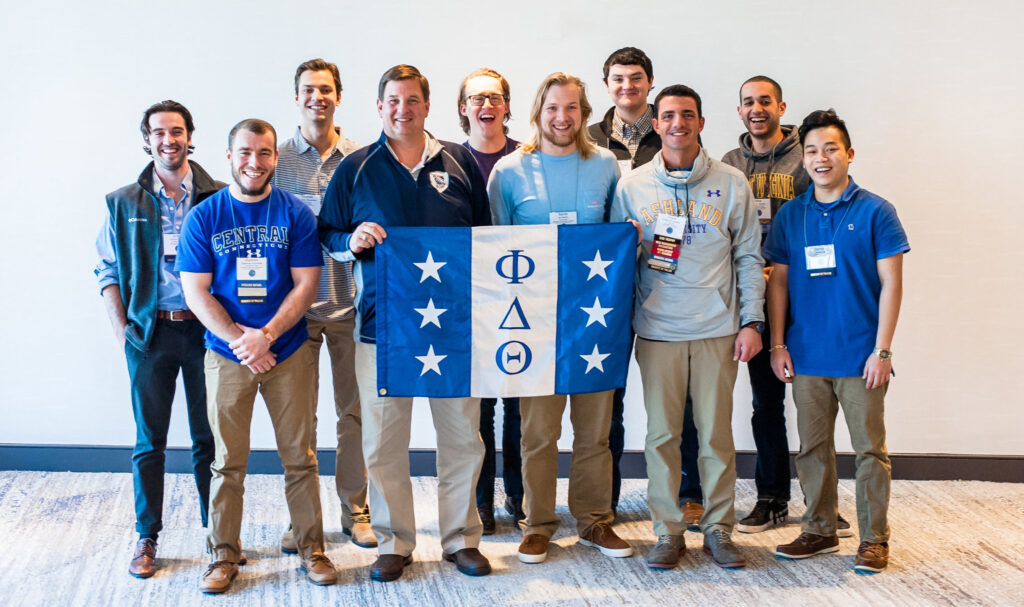Become a Phi Delt Volunteer
Please complete the following form to show your interest in becoming a Phi Delta Theta volunteer.
"*" indicates required fields
Chapter Advisory Boards

Phi Delta Theta is always looking for men and women who have the desire and willingness to share their expertise and background with the undergraduate brothers. The Chapter Advisory Board’s responsibilities are spread out throughout a committee structure. The CAB commonly includes a chapter advisory board chairman, and advisers that assist with such operations as finances, recruitment, academics, alumni relations, risk management, Phikeia education, and campus relations. The CAB meets independently, occasionally attends chapter meetings, and works with chapter officers that match their responsibilities. Chapter Advisory Board members are also asked to participate in an online certification process prior to officially assuming their post.
The Chapter Advisory Board is usually made up of alumni from that specific chapter and other Phi Delts who live in the surrounding community. However, an increasing number of Chapter Advisory Boards have enhanced their board membership by involving parents and members of the university and surrounding community. These individuals bring a fresh and different perspective to the Fraternity, which can positively impact the undergraduate brothers.
Serve an ALS Family

The Live Like Lou Foundation works to match Phi Delta Theta volunteers with ALS families in the United States and Canada for hands-on service and support. The goal is to provide ALS families with dignity, support, and camaraderie during their ALS journey in a unique way that protects everyone from unnecessary exposure to illness or other risks.
See Our Unmatched ALS Families
Conference Faculty

Those who have attended Phi Delta Theta conferences know that an important factor in a student’s experience is their small-group chapter leader. The Fraternity is always in need of effective facilitators who can guide its members through specific learning objectives within the conference’s curriculum.
House Corporations

A chapter’s house corporation is made up of dedicated individuals who are elected as volunteer trustees of a nonprofit corporation formed to own and operate a chapter house for a Phi Delta Theta chapter. The house corporation is organized and incorporated under the laws of the respective state or province and serves as the legal entity that holds title to any property owned.
The house corporation board of directors acts as the landlord of the chapter house. It also holds responsibility for the upkeep and maintenance of the chapter house, payment of mortgages and property taxes, and the building of a reserve fund to insulate the corporation from future financial hardship.
Province Presidents

Phi Delta Theta chapters are divided into geographical regions that we call provinces. Each province is assigned a president who is a Phi Delta Theta alumnus volunteering his service to the Fraternity. The province president is appointed to a two-year term of office by the General Council subject to the approval of the chapters in the respective area.
The role of the province president is to serve as a deputy of the General Council in safeguarding the welfare of the Fraternity in the region committed to his care. The province president appoints chapter advisory board chairmen, assists in the expansion of the Fraternity in his area, works alongside the chapter support coordinator in the region, and makes visits to each chapter when necessary to work with the chapter and volunteer officers.
